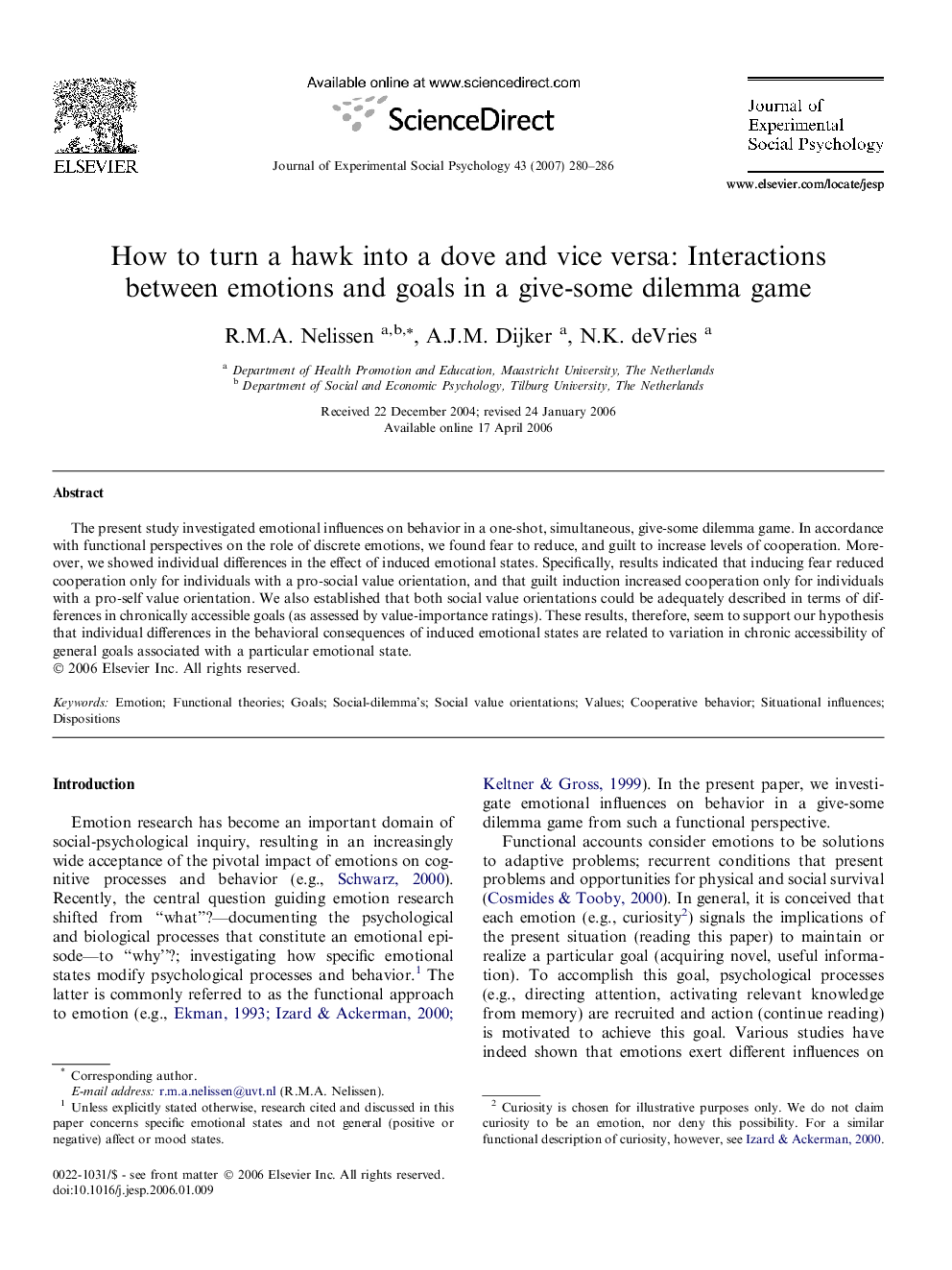| Article ID | Journal | Published Year | Pages | File Type |
|---|---|---|---|---|
| 948974 | Journal of Experimental Social Psychology | 2007 | 7 Pages |
The present study investigated emotional influences on behavior in a one-shot, simultaneous, give-some dilemma game. In accordance with functional perspectives on the role of discrete emotions, we found fear to reduce, and guilt to increase levels of cooperation. Moreover, we showed individual differences in the effect of induced emotional states. Specifically, results indicated that inducing fear reduced cooperation only for individuals with a pro-social value orientation, and that guilt induction increased cooperation only for individuals with a pro-self value orientation. We also established that both social value orientations could be adequately described in terms of differences in chronically accessible goals (as assessed by value-importance ratings). These results, therefore, seem to support our hypothesis that individual differences in the behavioral consequences of induced emotional states are related to variation in chronic accessibility of general goals associated with a particular emotional state.
